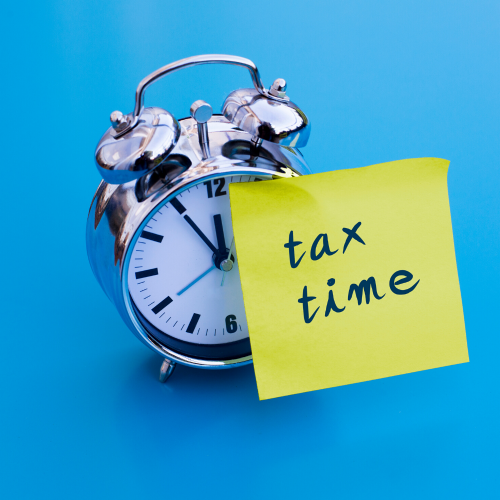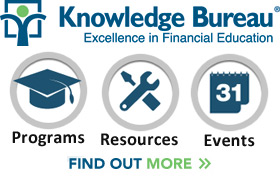
Immediate Expensing Rules: Good Tax Policy?
Over the course of the last two federal budgets (April 16, 2024 and November 4, 2025), the rules for claiming Capital Cost Allowance (CCA) have been uncertain. The proposal to extend immediate expensing rules for certain acquired assets were paused for over a year and then re-introduced in a series of four complex measures which together with new rules for Scientific Research and Experimental Development have become known as the “Productivity Super-Deduction”. A backdrop appears below. The key question: will this complexity be effective as an economic stimulator?Networking Fun at Canada’s Most Innovative Virtual Conference
 Last week we introduced you to the thought leaders that will be taking the virtual stage at DAC 2021, but that’s not the only action that will be happening at Canada’s most innovative virtual conference from October 17-19. As last year’s attendees can attest to – we’ve brought the networking fun of a live event to a virtual environment. Here are some of the highlights you don’t want to miss out on:
Last week we introduced you to the thought leaders that will be taking the virtual stage at DAC 2021, but that’s not the only action that will be happening at Canada’s most innovative virtual conference from October 17-19. As last year’s attendees can attest to – we’ve brought the networking fun of a live event to a virtual environment. Here are some of the highlights you don’t want to miss out on:
Important Relicensing News for KB Students This June
 Some important things have been happening to kick the summer off for Knowledge Bureau students and graduates: June 30 is the relicensing deadline for designates who must meet the 15 annual CE credit requirement and submit their Certificate of Attestation by this date. Check out the handy Q&A Relicensing Guide below and remember to send in your Attestation to Standards of Conduct. We hope your professionalism continues to inspire new students to join the ranks of these esteemed credentialled professionals across the nation, by earning their designation, too.
Some important things have been happening to kick the summer off for Knowledge Bureau students and graduates: June 30 is the relicensing deadline for designates who must meet the 15 annual CE credit requirement and submit their Certificate of Attestation by this date. Check out the handy Q&A Relicensing Guide below and remember to send in your Attestation to Standards of Conduct. We hope your professionalism continues to inspire new students to join the ranks of these esteemed credentialled professionals across the nation, by earning their designation, too.
Higher Volumes, Complexity Highlight Tax Season 2021
 The latest key tax filing statistics for tax season 2021 - February 9 to May 25 – show more tax returns were filed than last year without the benefit of tax filing deadline extensions. As tax season 2021 now closes in on the June 15 proprietorship deadline exhausted tax specialists and highly involved financial advisors, will need to continue the pace for five specific reasons:
The latest key tax filing statistics for tax season 2021 - February 9 to May 25 – show more tax returns were filed than last year without the benefit of tax filing deadline extensions. As tax season 2021 now closes in on the June 15 proprietorship deadline exhausted tax specialists and highly involved financial advisors, will need to continue the pace for five specific reasons:
PBO vs Federal Budget: Bigger Deficit, Slower Growth
 The Parliamentary Budget Officer (PBO) released a post-budget economic and fiscal outlook last Thursday, on the same day the April 19, 2021 budget passed its second reading. It was a timely move, as the report focused on the impact of the $142.9 billion in new measures proposed – a number which excludes pandemic related support. It suggests Canada’s long-term economic outlook may be more expensive and less rosy than the budget estimated.
The Parliamentary Budget Officer (PBO) released a post-budget economic and fiscal outlook last Thursday, on the same day the April 19, 2021 budget passed its second reading. It was a timely move, as the report focused on the impact of the $142.9 billion in new measures proposed – a number which excludes pandemic related support. It suggests Canada’s long-term economic outlook may be more expensive and less rosy than the budget estimated.
Gone Fishing: Can CRA Do That?
 There are two kinds of fishing expeditions. For most of us, tales of the big one that got away tend to brighten moonlit campfire stories. But when it comes to fishing expeditions by the CRA, storm clouds can emerge quite quickly. That’s why it’s important to understand the law and taxpayers’ rights under it. Knowledge Bureau Report welcomes Marco Iampieri B.A., JD, M.B.A. to its editorial team to explain why.
There are two kinds of fishing expeditions. For most of us, tales of the big one that got away tend to brighten moonlit campfire stories. But when it comes to fishing expeditions by the CRA, storm clouds can emerge quite quickly. That’s why it’s important to understand the law and taxpayers’ rights under it. Knowledge Bureau Report welcomes Marco Iampieri B.A., JD, M.B.A. to its editorial team to explain why.


